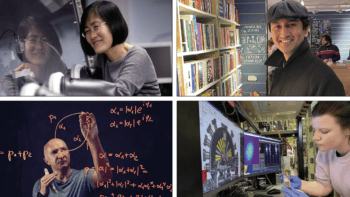The European Union (EU) is still investing much less in research than the US and Japan, according to a report published by the European Commission in Brussels yesterday. The “Third European Report on Science and Technology Indicators 2003” reveals that even though it produces the highest number of science graduates and postgraduates - and also publishes the largest number of scientific papers - the EU employs fewer researchers than the US and Japan.
The report focuses on four main areas; human resources; industry and competitiveness; universities and public research centres; and European perspectives. The EU produced 2.14 million graduates in science and technology in 2000, compared to 2.07 million in the US and 1.1 million in Japan. However, it only employed 5.4 researchers per 1000 workers, compared to 8.7 in the US and 9.7 in Japan. Almost three quarters of European post-graduates who go the US for their PhDs prefer to stay there after completing their studies. This number has been rising since the beginning of the 1990s.
The EU devoted a much smaller proportion of its national wealth to research compared to the US and Japan. This gap is increasing because the European private sector invests much less in research and development.
The report also finds that European civil research did not benefit from the decline in military research budgets. Europe does not seem to be able to translate defence research into technological applications, in marked contrast to the US.
Speaking at the launch of the report, European Research Commissioner Philippe Busquin said: “This is not just a study, it is a policy tool. It will enable European leaders in research and innovation to monitor their progress.” He also spoke about the “brain-drain” problem and how to address it. Policy-makers must use the benefits that Europe has to offer to turn Europe into the most competitive knowledge-based economy by 2010, he said.



